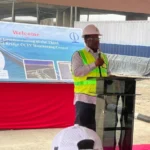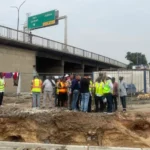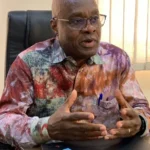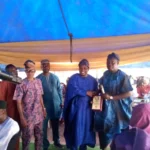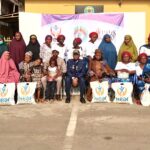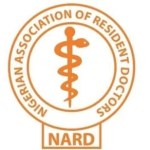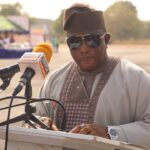By Abujah Racheal
A leading vaccine expert, Dr Simon Agwale, has called for urgent investment in vaccine research infrastructure to strengthen Nigeria’s ability to tackle future pandemics.
Agwale, a global vaccine researcher and member of the international “100 Days Mission” team, spoke to the News Agency of Nigeria (NAN) on Saturday in Abuja.
He made the remarks on the sidelines of the Inaugural Vaccine Research Retreat hosted by the Federal University Teaching Hospital (FUTH), Lafia, Nasarawa State.
The 100 Days Mission is a project of International Pandemic Preparedness Secretariat.
It is meant to prepare as much as possible so that within the first 100 days a pandemic threat is identified and relevant interventions provided in safe, effective and affordable manner.
Agwale warned that Nigeria’s lack of scientific data and local development capacity pose a serious threat to its pandemic preparedness and response.
According to him, the country should stop relying on imported vaccines and outdated production methods to solve its health challenges.
He said the establishment of genomic laboratories and animal testing facilities was essential for local production of vaccines.
“Without basic research capacity and animal testing infrastructure, it is impossible to develop vaccines.
“We must stop depending on others for scientific solutions,” he said.
He said that vaccines were the most effective public health tools, capable of eradicating diseases and preventing widespread transmission through strong population-level immunity.
“However, vaccine development requires a rigorous scientific process involving laboratory research, clinical trials, and large-scale manufacturing capabilities, he explained.
He also stressed the importance of identifying correlates of protection, and specific immune responses that confer immunity before testing vaccine candidates in humans.
He cited the COVID-19 pandemic as a clear example of how rapid vaccine development could save lives and reduce global suffering.
He said U.S. government adopted a rolling review model and funded companies upfront to speed up vaccine production timelines.
“Manufacturers were told to produce at risk. If the vaccine failed, the government would bear the loss,” he said.
This bold approach, he said, helped deliver safe and effective COVID-19 vaccines in less than a year from the start of the outbreak.
He said the experience inspired the launch of the global “100 Days Mission,” aimed at producing vaccines within 100 days of a future pandemic’s emergence.
“I am part of the international committee working on the framework,” he said.
He also clarified the science behind different vaccine platforms, explaining why side effects and immune responses vary between technologies.
He urged the Nigerian government and key stakeholders to invest in genomic labs and build robust vaccine development platforms.
“If you don’t know the genetic sequence of the disease-causing organism, you can’t make a vaccine,” he said.
He stressed the need to stop exporting samples abroad and to build self-reliance through local scientific infrastructure and expertise.
He said that Nigeria’s health security depended on how quickly it could build sustainable research systems to address local and global health threats. (NAN) (www.nannews.ng)
Edited by Uche Anunne


